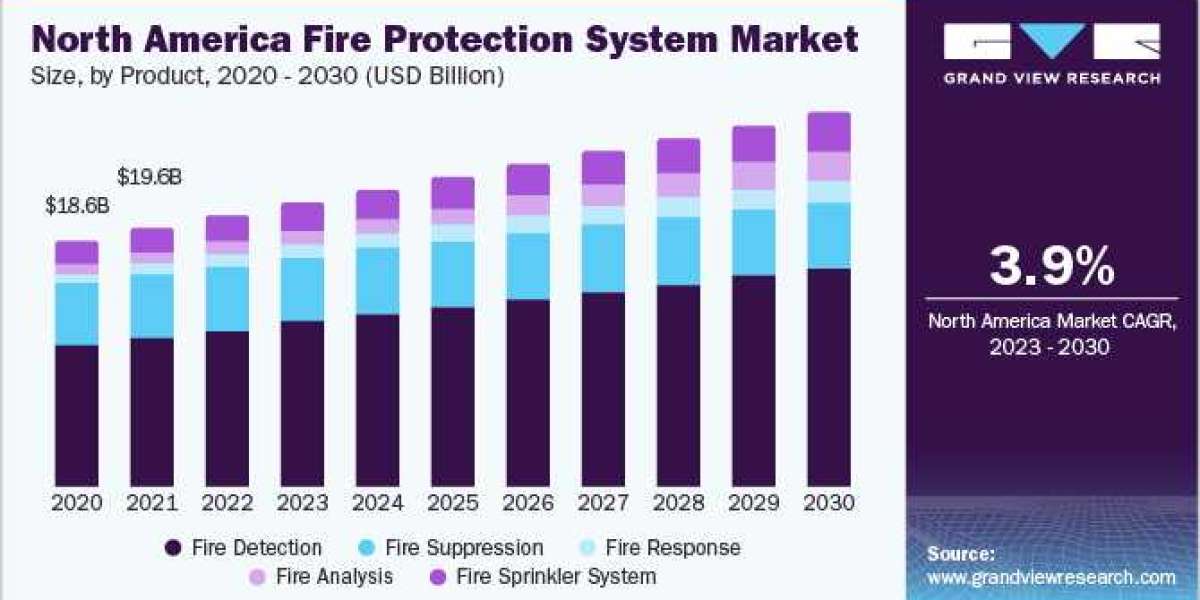A large number of financial scams target senior citizens specifically. Knowing the warning signs of each of these scams can help you avoid becoming a victim of one of them in the future.
Scam artists have had more opportunities to increase the number and variety of scams they perform as technology has become more prevalent in our daily lives. There are numerous ways scammers can trick you into disclosing confidential personal and financial information, ranging from impersonating a loved one to posing as a government employee.
No matter how innovative, alluring, or promising a scam appears to be, the end result is always the same: you lose your funds. Knowing the warning signs will assist you in avoiding being scammed and, as a result, protecting the money you have worked so hard to earn.
Why Are Seniors Particularly Vulnerable to Financial Scams?
In the United States, the Federal Bureau of Investigation estimates that seniors account for more than $3 billion in annual losses as the result of identity theft. While seniors are not the only ones who fall prey to these scams and lose money, there are a few factors that make them more susceptible to falling prey to them.
Many seniors, particularly those who started saving for retirement at a young age, have a substantial amount of money in their bank accounts. According to research conducted by the AARP and Oxford Economics, people over the age of 50 control 83 percent of household wealth in the United States. This, combined with many seniors' aversion to or lack of proficiency with technology, makes them prime targets for cybercriminals. Many people may also feel isolated and alone, which may lead them to put their faith in others more readily.
There is also the issue of declining health to consider. Scammers will sometimes try to take advantage of this, knowing that you will be more susceptible to their schemes. This is most commonly found in annuity scams, but it can also be a motivating factor for scammers to commit other types of fraud, such as Medicare fraud and grandparent scams.
Seniors are the target of seven financial scams.
Many scams are similar in nature; however, some scammers will experiment with different approaches in the hopes of getting you to fall for the trap. Fake-check scams, tech-support scams, and investment scams are just a few of the time-honored scams that still exist today. While each one is unique in its own way, there are some common themes and warning signs that you should be on the lookout for so that you don't fall victim to any of them.
Once a scammer has obtained your money, there is frequently little or no way to recover it. The same way you should prepare for a financial disaster, you should also prepare for a situation in which you believe you are the victim of fraud or deception. Being aware of the specific types of financial fraud that are likely to target you will help you to remain aware and alert if someone approaches you with one of these schemes in the future.
Scams involving forged checks are number one.
Fake-check scams are frequently associated with other types of fraud, such as phony prizes or bogus employment opportunities. The basic premise is that someone will send you a check for an amount that is greater than what they owe you and claim it was an accident. Afterwards, they will request that you wire the excess funds back to them. The original check was a forgery, and you'll discover this after you've sent the money to the recipient.
Example: If someone sends you a $500 check when they owe you only $50 for a good or service, they will ask you to wire them the $450 difference to cover their mistake. In accordance with Regulation CC, which was established by the Federal Reserve, a bank is legally required to deposit certain check funds within days, causing the individual who is being scammed to believe the funds are present and to wire the money to the scammer. Eventually, the bank will discover that the check was a forgery, and you will realize that your $450 investment was a waste of time.
Fake check scammers will frequently use a check that appears to be legitimate, making it difficult to identify the fraud simply by looking at it. Instead, there are a few things to keep in mind so that you can protect yourself in other ways as well. Scammers take advantage of people whenever they send them a check and then ask them to send money back. As a result, if you ever find yourself in this situation, consult with your bank for professional advice. Also, never accept checks for more than your selling price, and never send money back to someone who has sent you a check.
Scams involving Medicare and Medicaid
During the years 2018 and 2019, Medicare worked on updating beneficiary cards to better protect against identity theft and fraud. In order to accomplish this, they changed your card numbers from your Social Security number to a number that was assigned at random. To get around this new feature, scammers have resorted to requesting your card number for purposes of activation or by claiming that your card is no longer valid and that if you provide them with your personal information, they will send you a replacement card.
Despite the fact that these scams can occur at any time, they are most frequently encountered during the Medicare open enrollment period. One thing to keep in mind is that Medicare employees will only contact you if they have a legitimate reason to do so. Medicare.gov outlines five important considerations to bear in mind:
If you haven't given Medicare permission to contact you in advance for your Medicare Number or other personal information, they will not contact you.
If Medicare calls you, they will never try to sell you anything.
It is possible that you will receive phone calls from people who will promise you things if you provide them with your Medicare Number. Please don't do it.
Medicare will never come to your house to see you.
Without your prior consent, Medicare will not enroll you over the phone.
Similarly, claims that you must pay a fee for upgraded service, requests for personal information over the phone, and requests for hospital bills for treatment that you did not receive are all red flags that you are the victim of a Medicare fraud scheme. If you do receive an unsolicited and seemingly fraudulent phone call from someone claiming to be a Medicare employee, hang up immediately, do not divulge any personal information, and do not hand over any old Medicare cards or card information to anyone, including law enforcement officers (shred them instead).
3. Scams involving technical support
It is possible for seniors to be more susceptible to tech-support scams than younger demographics because many seniors are less familiar with technology. These can take the form of a phone call, a pop-up warning, or an online ad for a fictitious technology corporation. These con artists will trick you into believing that you have a virus or that something is wrong with your computer, phone, or other technology. They will then request that you wire them money in order to fix a problem that does not exist.
When dealing with tech-support scams, it's important to remember that legitimate tech companies will not contact you unless there is a genuine problem with your device. You should not call a phone number that appears in a pop-up window on your computer or other electronic device. Real security warnings will not have a phone number listed for you to call in order to resolve the situation. Instead, put down what you're doing, don't click on anything, and contact a reputable company for assistance instead.
4. The lottery plus the words "You've Won..." Scams
Unless you entered to win and you receive a phone call, email, or letter in the mail stating that you've won the lottery or a new car, or any other large-ticket item that seems too good to be true, it is likely that you've been the victim of a scam. In order to pay a small fee in connection with lottery and other "you've won..." scams, you will frequently be required to wire money. Fake customs fees and tax charges will always be present, regardless of the reason for the fee or charge.
When it comes to these types of scams, the best course of action is to remain calm and rational. Make a note of the fact that any lottery or sweepstakes that requires payment in advance is a scam. If you didn't enter to win or if receiving your prize is contingent on providing your Social Security number or other personal information, it's best to flee in the opposite direction from where you came in first.
5. Scams involving investments
You may become more interested in investments as you grow older and begin to see the fruits of your many years of hard work as a way to continue to build your retirement savings. This can be especially appealing to those who are late starters in their retirement planning and are falling behind on their savings. Because scammers are aware of this, it is possible that you will become a victim of one of these scams.
You can avoid becoming a victim of fake investment scams by checking the credentials of the salesperson and, most importantly, by not allowing anyone to pressure you into making an immediate decision. Scammers will always try to convince you that there is no time to waste or else you will miss out on the opportunity. In many cases, this is a telltale sign that the product or service you're looking to invest in is a fake. Another thing to be on the lookout for is any assurances that the investment will perform as expected. While some investments do well, there is always a risk involved — after all, that is the name of the game when it comes to investing — and no one can predict exactly how well it will perform.
7. Grandparent Scams (also known as "grandparental fraud").
Scammers will go to any length to obtain your financial information, including posing as your grandchild. When they call you (as your grandchild), they will say they are sick, hurt, or in trouble, and you will be able to help them. They will then request that you send money to them via wire transfer as soon as possible. According to Lisa Schifferle, an attorney with the Federal Trade Commission, it is critical to be aware of these scams, particularly during the COVID-19 pandemic, when many people are already feeling vulnerable.
As with investment scams, you should never allow anyone to rush you in these types of situations. Scammers will typically request your secrecy and claim to be in desperate need of money, but it's important to consult with a family member if you're unsure whether or not the situation is legitimate. In an attempt to catch the scammer in the act, it can also be beneficial to ask probing questions that only your actual grandchild would know the answers to. However, if they claim to be a family member and demand money immediately while also requesting your confidentiality, it's safe to assume it's a scam and you can simply hang up the telephone.
Charity Scams are number seven on the list.
With so much need in the world, it can be difficult to say no to a charitable organization's request for assistance. As a result, because scammers recognize the existence of genuine charitable individuals, they will frequently pose as a charitable organization in order to collect your money and pocket it. Despite the fact that these scams can occur at any time, they are more common after large-scale disasters.
The first step in identifying a bogus charity is to conduct thorough research. Look for any information you can find about the organization on the internet. If the scammer has used the same charity in the past, there will almost always be warnings that it is a fraud on the website. It's also worth checking with organizations such as the Better Business Bureau's Wise Giving Alliance or Charity Navigator to see if they have any information on the charity in their databases. If you are unable to locate any information, it is best to refrain from making a donation.
How to Avoid Being a Victim of Fraud
Even though there are specific actions that you can take in response to each type of scam, there are a few general best practices that you should keep in mind. It is critical to be aware of the following points in order to avoid falling victim to a scam:
Don't be rushed by anyone or anything. Allow yourself enough time to process what is taking place.
Make sure to check the person's credentials before disclosing any sensitive information to them.
If you're not sure if it's a scam, talk to someone you trust about it.
Keep your social media accounts private in order to prevent scammers from gaining access to your personal data.
Never send money to someone without first checking out who they are and what they are doing.
When dealing with a potential scam, the best thing you can do is give yourself plenty of time to think things through and avoid making snap decisions. Scammers will have done their research in order to learn important details about your life, so don't put your trust in them even if they know a personal detail about yourself.
Keep in mind that two tell-tale signs of a scammer are requests for urgent money and requests for confidentiality in their communications. Some scammers, particularly those who conduct their scams through the mail, will not explicitly request confidentiality. You should, however, always check the credentials of anyone who asks you to wire money or provide them with your personal or financial information before doing so.
Another method of avoiding being scammed is to block unknown callers from your phone. The greater the number of scammers you are able to block, the less likely it is that you will fall victim to one of their schemes. Many seniors don't have active social media accounts, but if you do, it's best to keep your page private so that scammers don't have as much access to personal information about your family, whereabouts, or hobbies as they would otherwise.
What to Do If You've Been a Victim of a Scam
If you believe you have fallen victim to a scam, stop all communication with the scammer immediately. Gather all of the information you have on the person, including text messages and phone calls, and file a complaint with the Federal Trade Commission about it.
If the scammer was able to obtain your Social Security number, you should notify all three credit bureaus as well as the Social Security Administration about the situation. If the scammer has obtained your banking information, you should also contact your financial institution as soon as possible to alert them of the situation. They can assist you in determining the best course of action to take, whether it's obtaining a new account number or delaying payment on a check you've written.
While you may not be able to get your money back, you may be able to prevent the loss of additional funds or the fall prey to the same bogus scheme by reporting it.
No one wants to be taken advantage of. Not only do you lose money, but you also have to spend time and effort repairing the damage done to your personal data. Always be cautious when providing personal or financial information over the phone or to someone you do not know in order to avoid this situation. Check the person's credentials, give yourself plenty of time to do your research, and speak with someone you can rely on. To be on the safe side is always preferable, as you don't want to lose valuable retirement savings, money from an annuity purchase, or any other savings you may have.



